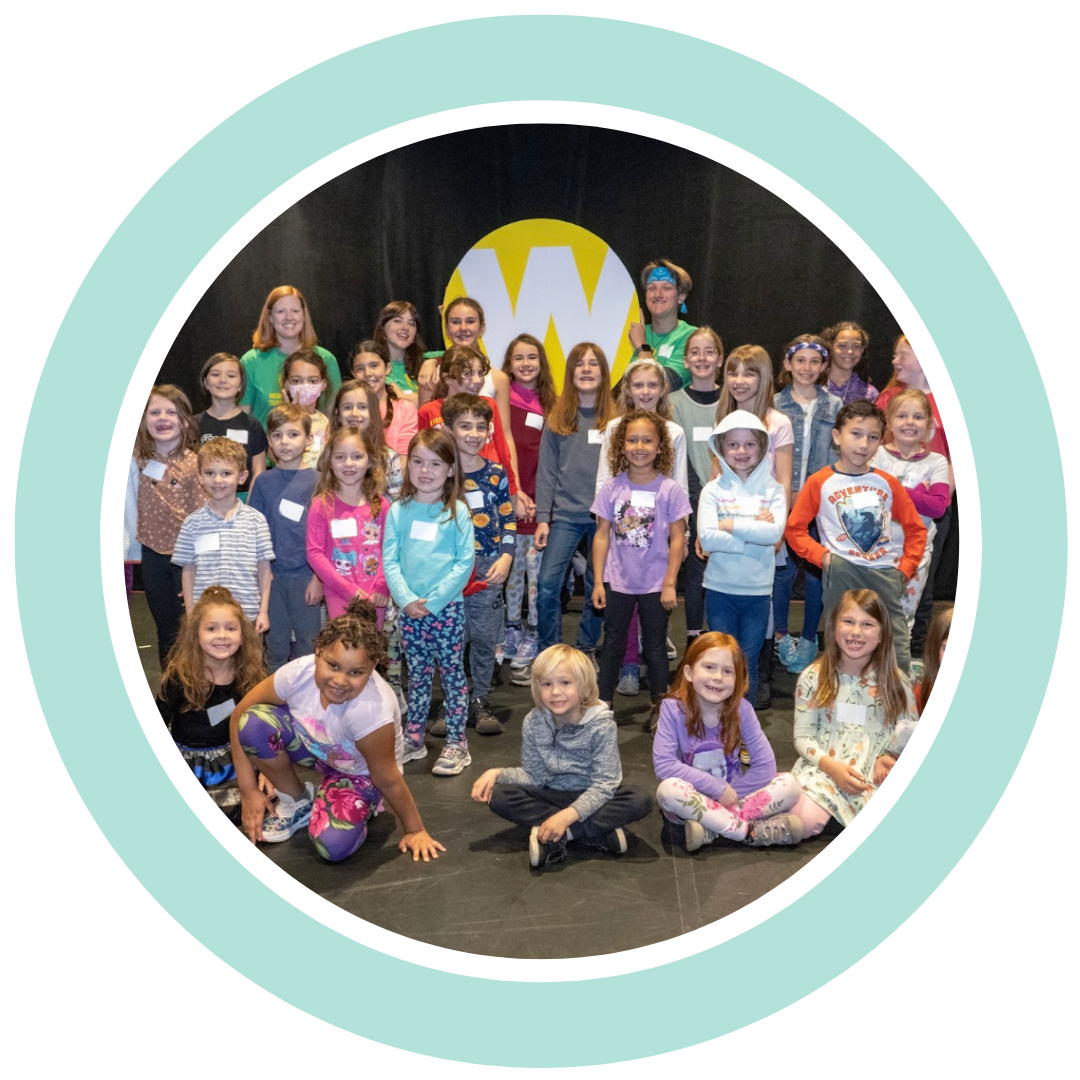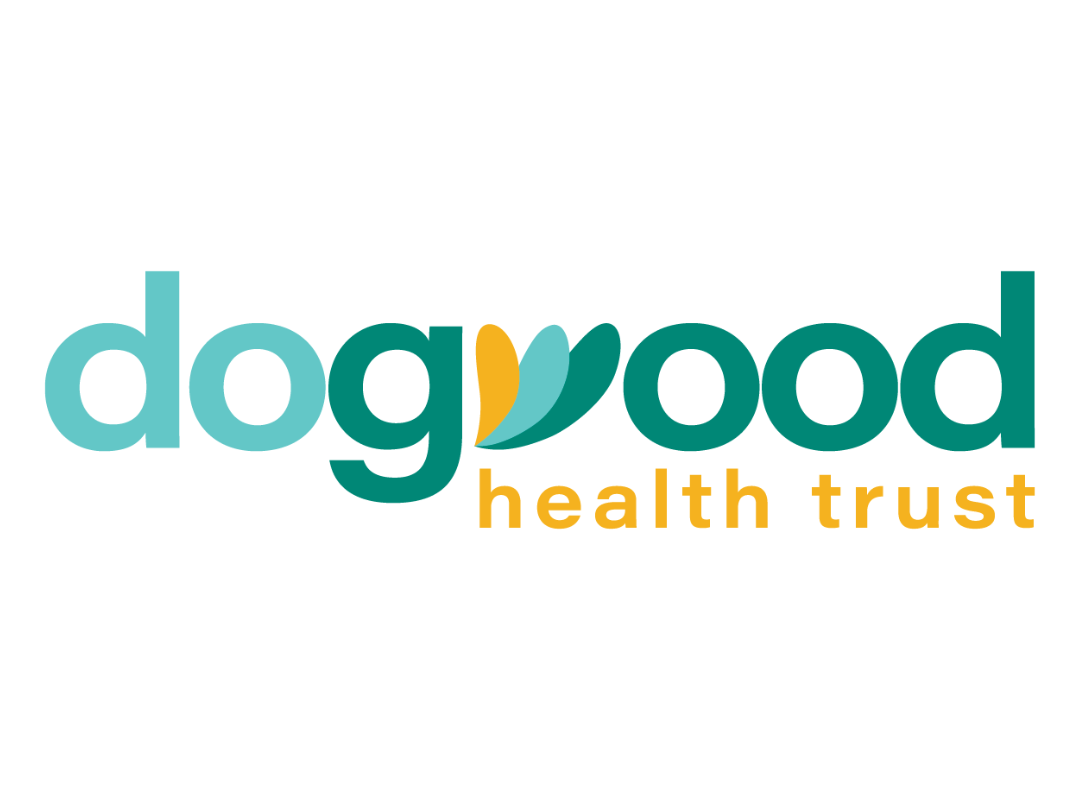ARTS FOR SCHOOLS
Overview
Closed | Next Cycle Opens May 13, 2024
Exposure to the arts, both in and outside the classroom, is proven to improve academic success. However, not all students have the same opportunities to enjoy these benefits. The Arts for Schools grant program helps Buncombe County nonprofit arts organizations and teaching artists provide arts focused performances, workshops, residencies, field trips for students attending Buncombe County and City of Asheville K-12 public schools. For a limited time, this grant will also include support for arts focused afterschool and camp programs. Grants range from $500-5,000. The deadline to apply is June 17, 2024 at 11:59 pm.
Sponsored by
Interested in supporting these amazing programs? Click here to learn more.

FY24 Arts for Schools recipient: Wortham Center for the Performing Arts’ All for Kids program
WITH ADDITIONAL SUPPORT PROVIDED BY:
Ray Griffin & Thom Robinson
Application Process
Eligibility & Requirements
The primary purpose of the Arts for Schools program is to provide in school arts programming for students attending economically disadvantaged schools. Our goal is to help ensure that students across Buncombe County have access to the benefits of these arts experiences.
Thanks to a time limited grant from Dogwood Health Trust’s WNC After 3 program, the Arts for Schools grant program will be expanded from FY25-27. During this period, applicants may apply for funding for in school and out of school programs, but will only receive funding for one focus area per funding cycle. Grants for in school programs range from $500-$2,000, and grants for out of school programs range from $500-$5,000.
In school is defined as programs occurring during regular school hours, and out of school programs are defined as occurring afterschool (weekdays only) or camps (summer or holiday breaks).
Please note: The primary focus of the WNC After 3 program is on afterschool programming, so afterschool programming will receive priority over other out of school programs. We also want to help ensure the longevity of these programs, so capacity building will also be a consideration.
ELIGIBILITY & REQUIREMENTS
- Applicants must be located in Buncombe County for at least 1 year.
- Applicants must be a 501c3 nonprofit arts organization OR a qualified teaching artist.
- Qualified Teaching Artist: To be considered a qualified teaching artist, you must have either a BA or BFA in their specific art form, or an equivalent in training and experience.
- Must have at least 5 years of experience working in arts education.
- Programs must serve students in Buncombe County or City of Asheville K-12 public schools.
- Programs must be free for students and schools (this could include providing a specific number of scholarships).
- Align with North Carolina’s Common Core curriculum and Essential Standards
- Program must take place between July 1, 2024 – June 30, 2025. Programs do not need to be scheduled by application date – however, funded programs must take place between July 1, 2024 – June 30, 2025.
- For in school programs: A school partnership agreement form is required as part of your application.
- For out of school programs: Applicants are ineligible to apply if they already receive funding for the proposed arts-focused program from Dogwood Health Trust’s WNC After 3pm initiative. For questions regarding eligibility, please contact rebecca@artsavl.org.
- For camps: Only 501c3 nonprofit arts organizations may apply for funding for camps, and the camp must be a program of that arts nonprofit.
ALLOWABLE EXPENSES
Examples of appropriate use of funds include: artist fees (only for artists located in Buncombe County for the specific school program(s) outlined in the proposal), student materials/art supplies, admission fees, and transportation fees for students to attend an arts experience.
Funding may not be used for:
- fees for artists not located in Buncombe County
- fees for school groups not located in Buncombe County
- transportation fees/ travel costs not related to students
- marketing materials; food/ hospitality supplies
- art, music, and dance therapists
- artifacts
- purchasing artwork
- contingency funds
- deficit reduction
- fundraising events
- food or beverages for hospitality or entertainment functions
- school band activities or equipment
- school choral activities or equipment
- lobbying expenses
- oral history and history projects
- tuition for academic study
- interest on loans, fines or litigation cost
Priorities
Economically Disadvantaged Schools: Proposals focused on serving students in Economically Disadvantaged Schools will receive priority (view school rankings). Learn more about how economic disadvantage is determined here. Applicants will also have the opportunities to explain how their program serves an underserved community.
Multicultural Programs: Although our top priority is serving Economically Disadvantaged Schools, we will also prioritize multicultural programs. For a program to be considered multicultural it must be conducted by artists, ensembles, or organizations of color and/or promote African American, Asian American, Latino, or Native American cultures.
Capacity Building for Afterschool Programs: The primary focus of the WNC After 3pm program is on afterschool programming, so out of school applications focusing on afterschool will receive priority over other out of school programs. Proposals that help ensure the long term sustainability of these programs will also be prioritized.
2024-25 Timeline
- May 13, 2024 | Application opens
- June 17, 2024 | Application deadline
- Mid July 2024 | Awards Announced
- Late July 2024 | Funds distributed
- May 31, 2025 | Final report due
Application & Support Resources
Application Link
Application is now closed (Question PDF). The deadline to apply is June 17, 2024 at 11:59 pm.
Support Resources
Grant Guidelines (PDF)
Overview for Applicants (Video | Slides)
If you need help with your application or have specific questions, email us at rebecca@artsavl.org. No phone calls, please. If you would like to discuss your application, please email us to set up an appointment.
2023-24 Award Recipients
Asheville City Schools Foundation will use grant funds to support the TAPAAS (Teaching Artists Presenting in Asheville Area Schools) Program, an arts integration program that sponsors high-quality artist residencies in Asheville Middle School, Asheville High School, the School of Inquiry and Life Sciences at Asheville (SILSA), and Asheville City elementary schools. Last year, the program served over 1000 students, and ACSF plans to expand it this year. Money will specifically go towards art supplies for teaching artists.
Asheville Creative Arts, a professional arts organization that produces, presents, and creates innovative, performance-based, visual, and multimedia works for multigenerational and multiethnic audiences. The Arts for Schools grant will support a tour of the original work SHELL, a performance about immigration and community co-created by puppeteer Edwin Salas and director Abby Felder, in Buncombe County kindergartens. The performance will be in English and Spanish.
Asheville Symphony Orchestra will help cover costs of the Music in the Schools program, which provides in-school classical performances for 2nd-4th graders in Buncombe County and Asheville City Schools. The program serves over 5,000 students in WNC each year and brings students and professional musicians together to explore classical ensembles that rotate through all orchestral sections. The program culminates in the Young People’s Concerts, where all county and city 5th graders attend a live, professional orchestra performance featuring the Asheville Symphony Orchestra.
Eric Carroll, an Asheville-based artist and educator working at the intersection of science, photography, and nature, will use funds for his workshop “Naturally Creative: Cyanotypes & Botanical Art,” which will introduce students to the cyanotype process as they work collaboratively to create a large-scale art project celebrating the natural world. Lucy S. Herring Elementary School will host Caroll’s workshop during their “Ecology Week” in October.
Visual artist, educator, and creative facilitator Ginger Huebner will lead a Create + Connect Collage/Chalk Self-Portrait workshop for 5th graders at Oakley Elementary. Huebner will share the work and story of African American collage artist Romare Bearden with students to inspire and inform their pieces. At the culmination of the project, students will exhibit their works and invite other classes to participate and learn.
Journeymen, which provides teenagers with arts programs and community groups that incorporate creative projects, music, wilderness programs, and more, will expand the reach of their free Crafting Passages program. Seventh and 8th grade middle schoolers in afterschool programs will complete hands-on building projects over the course of eight weeks across Asheville and Buncombe County Schools.
LEAF Global Arts will host three grade levels of Pisgah Elementary School students for hands-on Cultural Arts field trips to LEAF’s location in downtown Asheville’s historic “Block.” Students will rotate between Leaf Schools and Streets teaching artists (74% of whom are multicultural) sharing modalities including African drumming, songwriting, dance, theater, Easel Rider visual arts, and more.
MusicWorks, an afterschool music program at Leicester Elementary, will use grant funds to support operating costs. MusicWorks concentrates on music education as a tool for student empowerment by improving academic importance and teaching life skills. The organization prioritizes serving children from underserved youth and low-income families who might not otherwise have access to intensive music instruction and its associated benefits. MusicWorks is the only five-day afterschool program at the elementary school, which was chosen as its homebase due to its rural location and high population of underserved students.
Teaching artist Nica Rabinowitz will bring her Connecting Through Cloth program to over 150 students at Buncombe County Schools, including Hall Fletcher Elementary, Leicester Elementary, Johnston Elementary, Woodfin Elementary, and Emma Elementary. Rabinowitz will visit classrooms with a SAORI loom, created to support students with physical disabilities and no weaving experience. Students will use local sheep’s wool, alpaca, and local kudzu, raising awareness and exposing students to locally grown producers and materials and introducing them to the “farm to cloth” process.
Funds will support Odyssey Clayworks’ multilingual clay class for English as a Second Language students. This grant will make it possible to hold the class, which has been held as a summer Clay Camp with support from the Buncombe County Schools Migrant Education Program, during the year. Students work on the potter’s wheel, make sculptures, paint, and decorate their work. Costs covered include instructor compensation, materials, and firing fees.
Wortham Center for the Performing Arts will work with schools through their Arts for All Kids program, which provides access for all children to participate and learn from the arts. The program provides scholarships for students from low-income schools to participate in matinee performances and pre-show workshops that prepare students for performance experience and deepen learning related to performance. Funds from this grant specifically will support performances of DOT DOT DOT: A New Musical, with student participation from Johnston Elementary.




